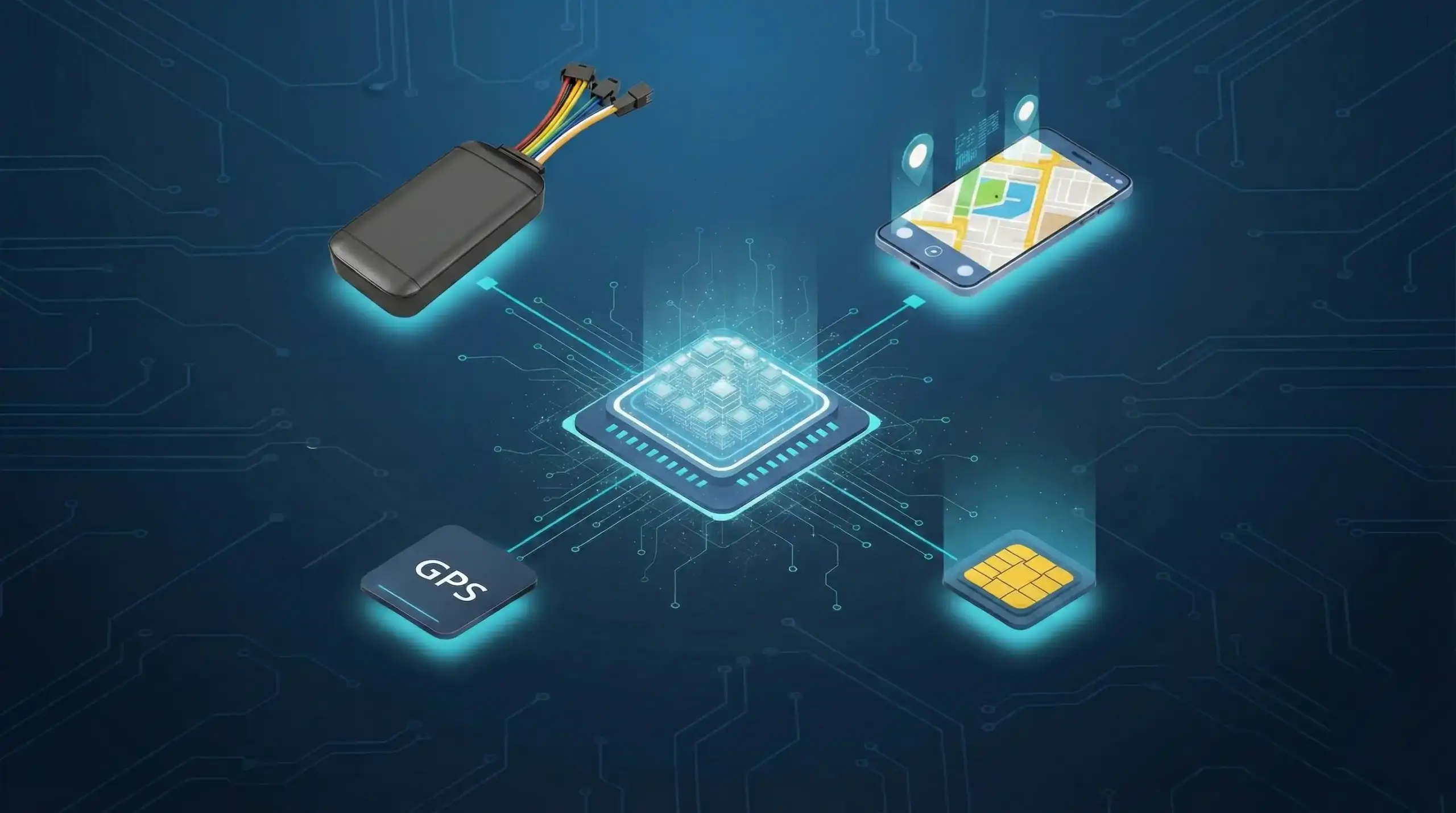Por que o rastreamento da frota é importante hoje
No mundo dos negócios de hoje, Manter o controle da sua frota é mais crucial do que nunca. As empresas estão se esforçando para aumentar a eficiência operacional, E o rastreamento da frota GPS surgiu como um divisor. Com plataformas como saltack, As empresas podem rastrear seus veículos em tempo real, dando a eles uma ferramenta poderosa para otimizar o gerenciamento da frota e aprimorar o desempenho geral.
Uma das maiores vantagens do uso de rastreadores GPS de primeira linha é o potencial de economia de custos. Quando as empresas monitoram de perto os locais e o desempenho dos veículos, Eles podem analisar o consumo de combustível e identificar ineficiências. Este insight lhes permite fazer ajustes que podem levar a uma economia significativa de combustível. Mais, O rastreamento GPS ajuda a otimizar as rotas, cortando viagens desnecessárias. Isso não apenas economiza combustível, mas também reduz o desgaste em veículos.
Melhor atendimento ao cliente é outra grande vantagem do gerenciamento avançado de frota. Com sistemas de rastreamento precisos, As empresas podem fornecer aos clientes atualizações em tempo real sobre prazos e locais de entrega. Esse tipo de transparência aumenta a satisfação do cliente e cria confiança-algo que é absolutamente vital para relacionamentos de longo prazo. Em uma época em que os clientes esperam nada menos que oportuno, serviço confiável, Ter soluções sólidas de rastreamento de frota é fundamental.
À medida que a competição esquenta em vários setores, As empresas precisam ficar à frente adotando soluções inovadoras para enfrentar os desafios operacionais. A plataforma de rastreamento de GPS da Surack é um ativo valioso, Ajudar as empresas a se concentrarem em métricas críticas de desempenho, como prazos de entrega e eficiência de rotas. Esse tipo de dados oferece às organizações uma imagem mais clara de como sua frota opera, Permitir decisões mais inteligentes que podem melhorar a produtividade e a lucratividade.
Principais características do rastreamento moderno de frota de GPS
As soluções de rastreamento de frota GPS de hoje percorreram um longo caminho, Embalado com recursos adaptados para atender às diversas necessidades de empresas que visam a excelência operacional. O rastreamento de localização em tempo real se destaca como um recurso crucial, permitindo que os gerentes de frota mantenham um olhar contínuo em seus veículos. Isso leva a uma melhor otimização de rota, Menos atrasos, e melhor atendimento ao cliente. Com o rastreador GPS certo, As empresas podem se adaptar rapidamente às mudanças, garantindo entregas oportunas.
Geofencing é outro recurso de mudança de jogo. Ele permite que os gerentes de frota estabeleçam limites virtuais para seus veículos. Se um veículo se afastar fora desses limites, Um alerta é acionado, permitindo uma ação imediata. Isso não apenas aumenta a segurança, mas também ajuda a fazer cumprir as rotas de entrega, Cortando o uso de veículos não autorizados.
Monitorando o comportamento do motorista também é fundamental nos sistemas de rastreamento modernos. Soluções como o Salpack fornecem insights sobre os hábitos de direção, De excesso de velocidade à frenagem dura e inativa. Ao analisar esses dados, Os gerentes de frota podem implementar programas de treinamento que incentivem a direção mais segura, em última análise, levando a menos acidentes e custos de seguro mais baixos.
Alertas de manutenção são outro recurso essencial, Garantir que os veículos sejam atendidos dentro do cronograma para evitar quebras. Alertas proativos com base em quilometragem e horas do motor ajudam as empresas a manter suas frotas funcionando sem problemas, minimizar o tempo de inatividade e despesas de reparo.
Por último, Os relatórios e análises detalhados fornecidos por plataformas como o Salpack são inestimáveis para tomar decisões orientadas a dados. Essas análises revelam tendências ao longo do tempo, Ajudar os gerentes de frota a encontrar ineficiências e otimizar o desempenho geral. A integração de tecnologia avançada como IA e aprendizado de máquina aprimora ainda mais esses recursos, oferecendo insights mais profundos e automatizando processos que antes eram manuais. Todas essas capacidades culminam em aumento da produtividade e eficiência operacional para os negócios de hoje.
Estudos de caso: Sucesso no mundo real com rastreamento de GPS
Muitas empresas de diversas indústrias adotaram com sucesso sistemas de rastreamento de GPS, mostrando os efeitos transformadores dessas tecnologias na eficiência operacional e economia de custos. Pegar, por exemplo, Uma empresa de logística que lutou para acompanhar a localização e os prazos de entrega de sua frota. Antes de implementar uma solução de rastreamento de GPS, Eles enfrentaram os crescentes custos operacionais devido ao mau planejamento de rotas e atrasos na comunicação. Depois de mudar para a plataforma GPS Surack, Eles ganharam visibilidade em tempo real em seus veículos, otimizou suas rotas, e consumo de combustível reduzido. Dentro de apenas seis meses, Eles relataram um impressionante 20% cair nos custos operacionais.
No setor de gerenciamento de serviços de campo, Um provedor de serviços de aquecimento e refrigeração enfrentou desafios gerenciando técnicos no campo. Anteriormente, As tarefas eram frequentemente maltratadas, resultando em atrasos e clientes infelizes. Ao adotar uma solução de gerenciamento de frota, Eles poderiam rastrear locais de técnicos, prever os tempos de chegada, e atribuir trabalhos com base na proximidade. Isso aumentou significativamente a eficiência do serviço, levando a um 30% aumento das pontuações de satisfação do cliente e um 15% aumento de empregos preenchidos diários.
Uma empresa de carga no setor de transporte lidou com roubo e uso de veículos não autorizados. Depois de implementar o rastreamento da frota GPS, Eles ganharam melhor visibilidade sobre os movimentos dos veículos e usaram a geofencing para restringir a viagem não autorizada. Isso não apenas reduziu os incidentes de roubo por 50% mas também melhorou a responsabilidade entre os motoristas. Esses estudos de caso ilustram como a tecnologia de rastreamento de GPS versátil pode ser, Fornecendo uma prova sólida de sua eficácia no aumento da eficiência operacional e nos custos.
Tendências futuras na tecnologia de rastreamento de frota GPS
A tecnologia de rastreamento de frota GPS está evoluindo continuamente, Moldar as indústrias de logística e transporte com várias tendências emergentes que afetarão significativamente as operações futuras. Um grande avanço é a integração da Internet das coisas (IoT) dispositivos em sistemas de gerenciamento de frota. Esses dispositivos podem coletar e transmitir dados em tempo real, Aumentando o monitoramento do desempenho do veículo, comportamento do motorista, e saúde da frota. Aproveitando soluções habilitadas para IoT, como o Surack GPS Tracker, As empresas podem obter informações que facilitam a tomada de decisão oportuna e aumentam a eficiência operacional.
A análise preditiva é outra tendência que abrange o gerenciamento da frota. Esses algoritmos usam dados históricos para prever possíveis problemas, Orientar os cronogramas de manutenção e melhorar a utilização de veículos. As empresas que adotam essa tecnologia podem minimizar o tempo de inatividade e reduzir os custos operacionais. Usando a plataforma GPS Salpack, As empresas podem acessar idéias preditivas para gerenciamento proativo de frota.
A ascensão de veículos autônomos marca uma mudança inovadora no rastreamento da frota GPS também. À medida que a tecnologia autônomo avança, Gerenciando frotas que incluem esses veículos exigirá novas abordagens de rastreamento e padrões de segurança. As empresas devem permanecer atualizadas sobre esses desenvolvimentos e adaptar suas estratégias de gerenciamento de frotas para manter uma vantagem competitiva.
Finalmente, À medida que a tecnologia avança, Medidas robustas de segurança cibernética tornam -se cada vez mais cruciais. Com maior dependência de soluções de rastreamento digital, proteger dados confidenciais de ameaças cibernéticas é essencial. A implementação de fortes protocolos de segurança cibernética ajuda a garantir que os sistemas de gerenciamento de frota sejam resistentes a possíveis vulnerabilidades.
Preparando -se para essas tendências - integração de IIO, análise preditiva, veículos autônomos, e segurança cibernética aprimorada - os negócios podem avançar seus processos de gerenciamento de frota, se posicionando para um futuro focado na eficiência, segurança, e custo-efetividade.









